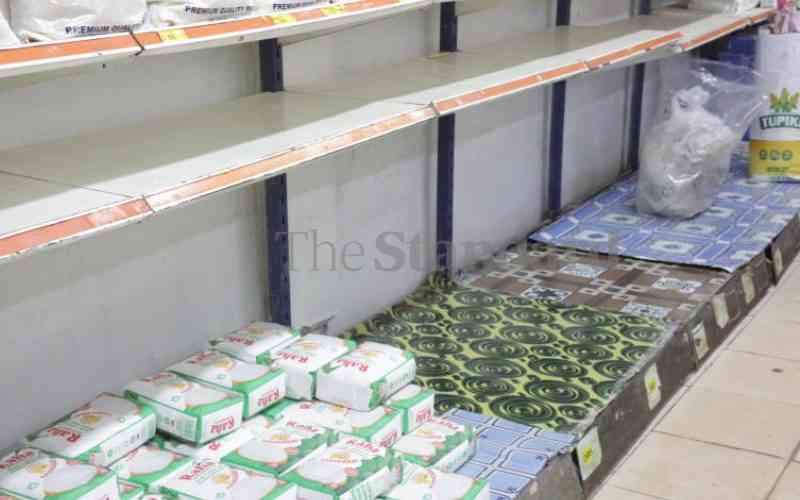×
The Standard e-Paper
Smart Minds Choose Us

The government has denied there is a shortage of subsidised maize flour in retail outlets.
This came as it emerged the ‘unga’ - which is to retail at Sh100 - is missing from the shelves of most supermarkets and shops across the country.